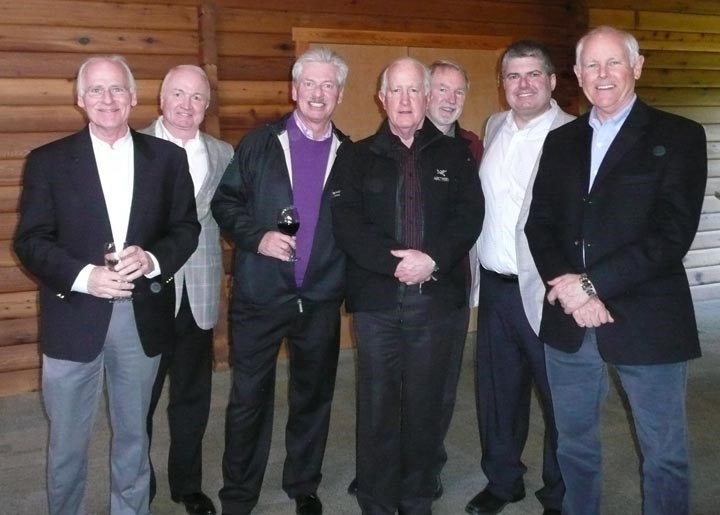It was September 2001, three days after 9/11.
Airports in North America were shut down - Toronto and Vancouver among them. Hundreds of planes sat silent, waiting for the okay to take the hordes of stranded world travellers back home.
We were booked to fly to Africa and climb Kilimanjaro. Eight type-A lads (three from Tsawwassen) who didn’t like hearing ‘No’.
We’d bought our tickets. We were raising money for the Make-A-Wish Foundation of Canada, and we’d been training hard. Nothing was going to stop us from getting on our flights, not even Bin Laden.
We left on the first flight to Europe. We flew non-stop to Amsterdam then Moshi, Tanzania, the bustling town at the foot of Kilimanjaro. Two of our group from Toronto arrived in Tanzania without their luggage. No clothes, no gear, and no very important satellite phone for me to do radio interviews with CBC on the way up. Luckily, I had a miracle contact. My seat mate on the flight down eastern Africa was the CFO of the Tanzanian Telephone Corporation. I phoned him in Dodoma, the capital, and he set the company looking for the one satellite phone they had in the bush. They delivered it to us, battery charged, the morning our climb began.
It was a magical trek all the way up the Machame route, six days led by our ever-smiling guide Erik who gave each of us our own Swahili name.
We filtered water together, ate together, slept together, and played cards with frozen, sticky fingers late into the night, usually 9 p.m.! The food was excellent. The only thing we weren’t wild about was the green soup. Hot water and what?
Mt. Kilimanjaro is the highest free-standing mountain in the world at 19,341 feet above sea level. It’s really a volcano with three cones, but is very dormant. We didn’t worry about lava rolling into our two-man tents.
Scientists say the age of the glaciers on Kili’s northern ice field is about 11,700 years old. But the glaciers are disappearing quickly. Eighty percent of the ice cover on the top of Kili is now gone. An estimate says more than 85 per cent of the famous Furtwangler glacier is gone. You can still touch it, but it’s a long way from the path to the summit.
All eight of us made it to the top - Uhuru peak. With the three wood that Erik carried for us (he’d never seen a golf club), we each hit one ball off the edge of the crater. At less than half the oxygen pressure up there, those balls are probably still flying!
After the very long 10,000 feet descent over one day, with cold Kilimanjaro beers in hand, we hatched a plan. It would work like this: each of us would throw in a $100 and we would buy a very good, and very BIG, bottle of Cognac. We bought a three-litre bottle (101.44 fluid ounces). It would be called The Kilimanjaro Tontine.
We knew then, even though life was good, that our time on the planet was finite, so, it was agreed that when any one of the eight of us ‘goes’ (kicks-the-bucket, says nite-nite, expires), the remaining seven would each have a good shot from the Tontine.
When the next one ‘went’, six would have a shot from the Tontine. Another one goes… and five would have a shot. And so on.
Many years from now, the final, single climber will toast his seven fallen comrades and the Kilimanjaro Tontine would be finished. Our climb would be but a memory.
This paragraph is taken from the lawyerly crafted Tontine Agreement, written by fellow climber Don ‘Twiga’ Baron (a lawyer) and signed by all eight climbers:
“Within 90 days of the passing of seven of the eight undersigned warriors, the surviving warrior shall, without assistance from or interference from any third parties, consume all of the remaining Precious Spirits, without interruption, in celebration of his fallen comrades and the monumental achievement of 24 September 2001, until the last damn drop is gone.”
Fast forward to a few days ago, and the 20th anniversary of our climb. Don (aka ‘Twiga’, ‘giraffe’ in Swahili) is gone. The remaining seven of us got together, laughed at our memories, and took our first swigs from the Tontine. We will continue to re-tell the stories from our time on Kili. But for now, the bottle sleeps in a dark, cool place, as we hope it will for many years to come. And Don is practising with his three wood where the air is even thinner, and the balls fly forever.
Editor’s note: Robb Lucy is the author of How Will You Be Remembered? The Definitive Guide to Creating and Sharing Your Life Stories


